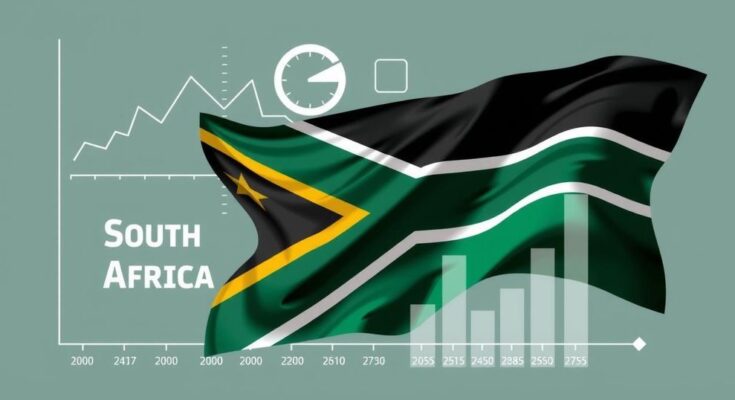Finance Minister Enoch Godongwana has proposed increasing South Africa’s VAT rate from 15% to 16% by 2026, citing poor economic performance. This proposal has faced backlash from opposition leaders who argue it will disproportionately affect the vulnerable. Alternatives to the VAT increase have been suggested, emphasizing the need for wealthier individuals to contribute more to taxation.
The South African government, led by Finance Minister Enoch Godongwana, has proposed a potential increase in the value-added tax (VAT) rate from 15 percent to 16 percent. This move has been met with widespread criticism from opposition parties and political figures, stating that it will disproportionately affect the most vulnerable populations. The proposal consists of a 0.5 percentage point increase this year, followed by a subsequent increase next year, totaling an increase of one percent by 2026.
Opposition leaders, including Julius Malema of the Economic Freedom Fighters, have expressed strong dissent against the VAT increase, emphasizing the need for higher taxes on the wealthy instead. Malema argued that funds for infrastructure investments should come from taxing affluent individuals, particularly those able to afford extravagant purchases. Similarly, John Hlophe from the uMkhonto weSizwe party described the proposed increase as “disastrous,” citing that the burden would significantly fall on Black South Africans.
The government’s rationale for the VAT increase is tied to its fiscal challenges, including a mere 0.6 percent GDP growth in the previous year. Godongwana mentioned that an increase would generate an additional 28 billion rand ($1.5 billion) needed to support social programs and public services, such as healthcare and education. He indicated optimism for the economy’s performance in future years, despite current difficulties.
In the face of the proposed changes, the Build One South Africa (BOSA) party has suggested alternative measures, including a reduction of R76 billion in government spending by halting bailouts for state-owned enterprises and freezing hiring practices. Critics, including Mmusi Maimane, termed the proposed budget as a failure, stemming from previous years of mismanagement.
John Steenhuisen of the Democratic Alliance has raised concerns regarding policies perceived as deterrents to foreign investment, such as the BELA bill and the controversial expropriation act. ANC chairperson Gwede Mantashe has defended the budget’s intentions, arguing that it addresses the fundamental needs of the population.
Songezo Zibi, leader of Rise Mzansi, suggested expanding the budget discussion beyond VAT increases, to include factors contributing to inflation that affect everyday South Africans. He acknowledged certain positive budgetary initiatives but called for a more integrated approach to alleviate living costs for citizens.
In conclusion, the proposed VAT increase in South Africa has ignited significant political discourse and opposition, raising questions about fiscal responsibility and social equity. While the government aims to generate additional funds for essential services, many critics advocate for alternative financial strategies to alleviate the economic burden on the general populace, particularly the underprivileged. The ongoing debate highlights the complexities surrounding budgetary decisions in the context of South Africa’s economic challenges and social inequalities.
The proposed increase in the VAT rate in South Africa has sparked immense political contention, with critics expressing concern that it will adversely impact low-income populations. Opposition leaders are advocating for wealthier individuals to shoulder a greater tax burden instead. The debate underscores the necessity for responsible fiscal policies that address social needs while fostering economic growth, suggesting a search for alternative funding approaches that do not exacerbate existing inequalities.
Original Source: www.okayafrica.com




